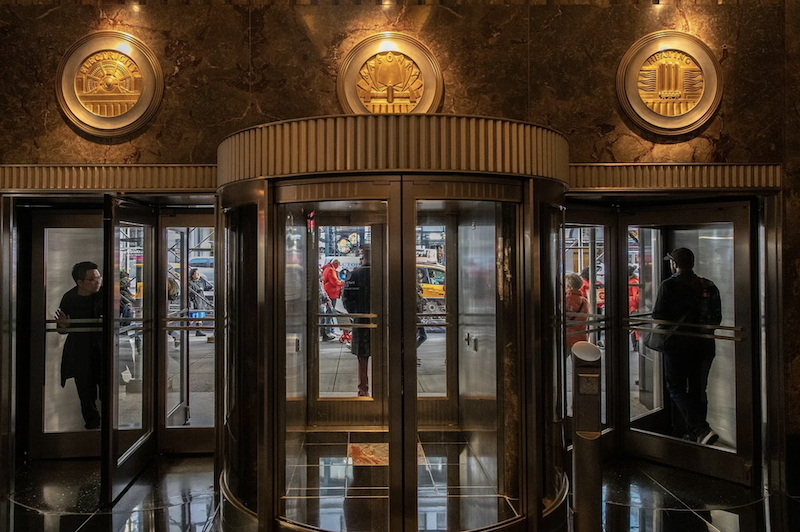The newly released International Building Code (IBC) for 2021 includes a provision that mandates automatic doors for entrances to public buildings.
IBC 1105.1.1 stipulates that in facilities meeting building occupant load thresholds for a number of common occupancies, accessible public entrances must have one door be either a full power-operated door or a low-energy power-operated door. The code applies to a wide range of public places, including retail stores, restaurants, clubs and casinos, movie theaters and concert halls, libraries, banks, and college dormitories.
“The new code requirement accommodates a wide variety of accessibility needs that manual doors being installed today cannot encompass,” said Joe Hetzel, technical advisor to the American Association of Automatic Door Manufacturers in a news release. In the COVID-19 era, occupants of all buildings could benefit from the touch-free, germ-free accessibility provided by automatic doors, according to the release.
As a result, more building owners may opt for automatic doors in retrofits as well as in new construction.
Related Stories
| Feb 9, 2012
Initiative to sell off under-used federal property gaining momentum
The bill is similar to a White House planto cut $8 billion worth of building costs by the end of the 2012 fiscal year, and to establish a panel to identify other sites worth selling or donating to nonprofits or state and local governments.
| Feb 9, 2012
Computer tool helps engineers design roof cladding using Canada's building code
Easier to design roof cladding that can withstand winds in a given area.
| Feb 9, 2012
Webinar focuses on lessons learned from LEED-certified industrial project
This case study will focus on strategies used to save the client money, achieve certification, and effectively market success once the project was complete.
| Feb 9, 2012
Rapid growth of zero energy buildings expected
Much of that growth will be in the European Union, where near-zero energy buildings are mandated by 2019 for public buildings, and by 2021 for all construction.
| Feb 9, 2012
Stiffer OSHA fines put strain on Kansas contractors
A fine for a violation that once cost between $750 and $1,200 now runs $7,000 or more per incident, according to a state industry association official.
| Feb 9, 2012
Webinar focuses on lessons learned from LEED-certified industrial project
A Construction Specifications Institute webinar will focus on the lessons learned through the design and construction of a LEED-certified industrial project, Better Living Mill Shop, the first industrial building in Central Virginia to earn LEED certification.
| Feb 8, 2012
California likely to eliminate redevelopment agencies
Leaders of California cities had been trying to fashion a compromise with lawmakers after the state Supreme Court ruled the state had the authority to eliminate the agencies and use their property tax money for local services.
| Feb 8, 2012
Project aimed at economical seismic retrofits on historic Memphis structures
The group will develop a low-cost seismic retrofit model that would benefit aging brick-and-mortar structures. It involves bolting steel brackets to existing wooden floor and ceiling joists.
| Feb 8, 2012
Houston signs on to Better Buildings Challenge
The challenge has about $4 billion in federal and private-sector funds, which it will use for building energy upgrades nationwide in the next two years.















